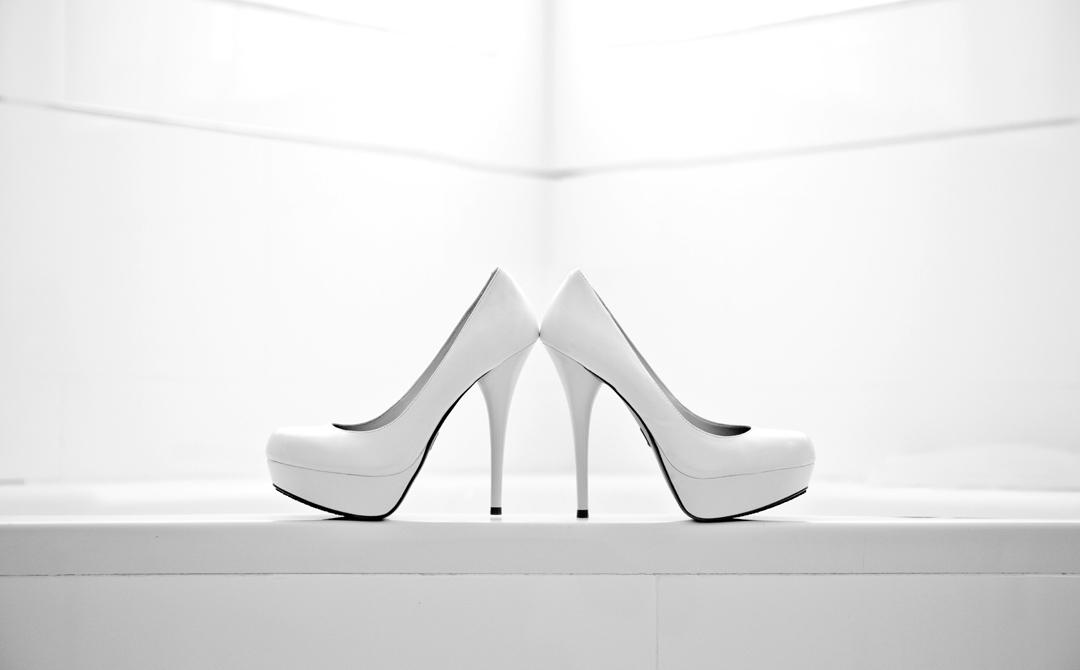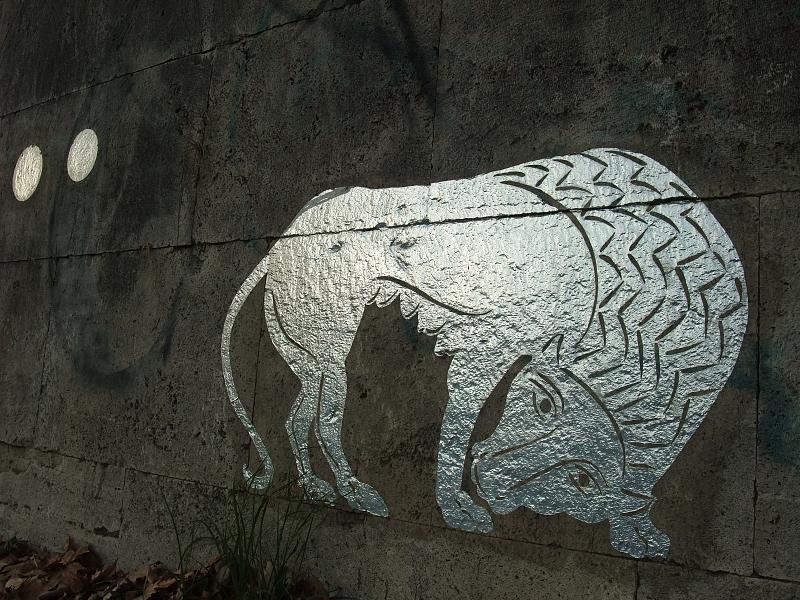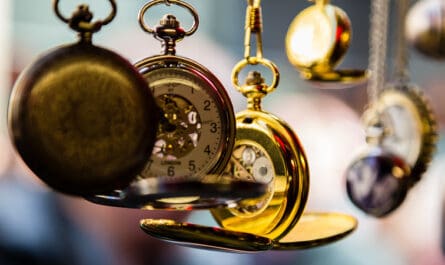The ceremony was held on a fine summer day in an aging Gothic cathedral with three spires that stretched conspicuously up into the West Hollywood sky, its perfect blue complexion reflecting the triumphant mood of the occasion. Everyone, it seemed, from every side of each family was in attendance, plus friends and acquaintances that included such royalty as Fred MacMurray, Susan Hayward and Glenn Ford, among others. Hundreds of invitations had been sent out: Dr. and Mrs. Giuseppe Petrassi and Mr. and Mrs. Tonino Di Luca humbly request the honor of your presence at the marriage of their daughter and son …
Smiling guests strolled through the king-sized doorways and past the mighty wooden columns, looking as clean and as polished, and some as ornate, as the elaborately decorated floor upon which they walked. “Welcome.” “Good afternoon.” “Thank you so much for coming.” “It’s such a great honor.” Every so often these phrases were expressed in Italian. Before long the pews were at full capacity. The organ piped. The choir sang. Cameras shuttered and flashed. Rays of sunlight splintered into the church, refracted through prisms of blue and red and yellow stained glass. It was really a very grand affair.
When the time came, the groomsmen marched proudly down the aisle with their shoulders pulled back and their heads held high. The bridesmaids followed, smiling uncontrollably and shimmering like dancers in their matching silver dresses. On their heels came the little flower girl who mechanically dropped red and white petals and the little ring bearer who walked with a stiff earnestness and a look of gravity on his seven-year-old face. Pockets of hopeful chatter simmered beneath the organ’s cheerful drone—there was much anticipation.
Ten minutes passed. Then came the gasps. Angie Lash had appeared, moving with elegance in a truly regal gown, long in the leg and slim in the waist, veil draping from her black hair, embroidered gloves up to her elbows, arm in arm with her father, the eminent Doctor Petrassi, a train of extravagant dimensions gliding in her wake. She held a bouquet of flowers to her breast. She seemed actually to glow.
From a distance one noted the outline of the passionate dark eyes, separated as they were by a full two inches; the smooth, robust cheekbones; the rich, curling eyelashes. Her angelic nose was turned up, its bridge splaying out at the top, merging seamlessly with her brow; her upper lip was as pulpy as the bottom one, and it would have been possible to draw, if one wanted, two perfectly vertical lines from the corners of her mouth up to the centers of her pupils.
These features caught the eye from afar—in detail they were all the more striking, all the more entrancing, all the more dangerous. Hence the numerous close-ups in her last film, Her Blood Runs Cold, in which Angie played an icy femme fatale, a murderess by proxy. A modestly-financed picture, true, and a bit silly to boot, but a leading part nevertheless, and a stepping stone to bigger things. Look had recently profiled her under the headline: “Has Another Star Been Born?” The article’s author likened her to Gene Tierney.
The organ abruptly stopped when Angie and her father came to the pulpit. Small noises—muffled coughs, zipped handbags, hushed whispers—resounded like bombshells through the gigantic cathedral. Or so it seemed to Angie, who had the sensation of watching herself being married. The feeling was similar to the one she had while viewing her own films or, perhaps more to the point, acting in them. There she was, at the front of the church, on stage, before an audience, playing the starring role of the bride. All of it had the look, feel and atmosphere of a big, scripted production, and suddenly she was seized by a terrible self-consciousness—was her performance convincing? Had she got the right attitude? Was she wearing the right expression? Why hadn’t she studied her lines more closely? She felt abstracted from the character she’d signed on to play. Panic-stricken, Angie half-expected to hear “Cut!” when her father kissed her on her powdered cheek and stepped backwards. On cue, Angie turned to Marco. A fulsome smile spread itself across her face.
you remember you met near the set of the television play you were acting in he drove to the studio in a small red sports car you didn’t know anything about cars but seeing him that day made you wish you did later he would tell you all about them you listening intently staring into the elusive hazel eyes he wore a pair of blue jeans cuffed at the bottoms and brown leather boots and a white t-shirt with a v-shaped collar when he passed you on his way to his audition that day you locked eyes and you virtually melted he gave a soft sort of smile stopped and said how much he enjoyed watching you in Catch Me he seemed the gentlest person in the world to you there was a terrific vulnerability in his face his eyes communicated wonder and mystery and innocence you’d seen him on the screen of course you had but in person he was something very different unlike anyone you’d met before or since and all at once you were his whether he liked it or not but he did and soon he was yours too and you lit out of the city together as often as you could heading for the coast you on the back of his motorcycle arms wrapped tight around his waist hair streaming behind you in the wind exhilarated and free totally free you played on the beach like kids and swam in the ocean and lay on the sand gulls soaring above tender waves rolling in the tide washing over your feet sailboats sliding by in the distance until the sun disappeared into the sea in your dressing room you made love and the mirror came crashing down shattering over the floor bits of glass glinting like so many diamonds and of course it wasn’t long at all before the press were onto you your photos appearing in the celebrity magazines and the gossip sections of the newspapers Angie and Bobby when mother confronted you you hemmed and hawed well aware of her prejudices he wasn’t Italian he wasn’t catholic he was wild he was trouble a blemish on your image a stain on your career bad news all around you stay away you hear me young lady you wise up and mother was always right wasn’t she without her you’d still be in Palermo no one would know you exist she gave you your dream and she made certain you realized it and you’re eternally grateful you are indebted to her forever yes you are she knows best and don’t you forget it but you turned a deaf ear to her for the first time in your life you and Bobby the two of you you were exclusive attending parties together and award ceremonies always together photographed all the time a big contented smile on your face on his something enigmatic a longing a sadness a wisdom or just something altogether defying description God you loved him didn’t you more than anything in spite of mother that was the trouble how could you love him more than you did her while you talked about marriage and children and a quiet home in Montana far away from it all you knew deep down in your full heart it was a flight of fancy as they say never could you betray her so after all she’d done for you she made you what you are a bright shining star going up up up she knows best without her you would be nothing at all a nonentity she told you always to remember that and so you did a dutiful daughter you let her steer you away managing your affairs per usual let her introduce you to Marco let Marco take you around and three whole months later in September when Bobby was off shooting a film on site in Texas you disclosed it to the press you and Marco celebrated Italian composer were engaged to be married the following summer you wondered then as you do now whether it stung Bobby to learn the news as much as it did you to deliver it but enough of that now young lady chin up you have done your daughterly duty and no looking backwards after all it was only a common fling a frivolous affair a childish passion a fleeting romance dime a dozen these things nothing serious nothing at all really you loved him though didn’t you no no no you didn’t you most certainly did not
It was official: Angie Lash and Marco Di Luca, twenty-one years her senior, were wed. The congregation spilled from the cathedral in large jabbering groups, lighting cigarettes and applying makeup and screening their eyes from the beating late afternoon sun. Cameras clicked away feverishly. They were now headed to the Beverly Wilshire for what promised to be a blast of a reception. A tangible excitement hovered in the air. All the stops had been pulled out. There would be a live orchestra, performed show tunes—including one from a musical in which Angie played a bit part—a gluttonous five-course Italian dinner, enough champagne to drown a small village. A night to remember. “You say you haven’t been to the Four Seasons?” a woman was heard saying in affected patrician tones. “Well, I can tell you it’s fabulous, dear—utterly fabulous.”
Cars and limousines lined the road as far as the eye could see. At length they began rolling away one by one, and as they did, the presence of a solitary figure, positioned across the street some fifty yards north of the church, grew more conspicuous: sitting atop an idling motorcycle, a cigarette burning between his lips, the collar of his black leather jacket turned up around his neck, thick sandy hair pushed back into a broad quiff, bereft in some tragic but enviable way, he stared.
Angie and Marco, the former’s train dragging along the bright grass, were approaching their limo when she caught sight of him. Her heart dipped. A knot of clouds eclipsed the sun—a long cold shadow was thrown over the cathedral. Their eyes met, and a knowing glance passed between them for an instant that contained a small eternity. The bike’s engine throttled and in a flash he was gone, shrinking away toward lonely, far-off hills. Angie watched with laden eyes until he was a speck on the horizon, until he was nothing—then a sharp gust of wind swept a single tear from her cheek. Simultaneously the clouds parted and Angie, aware of an approaching camera, snapped back into character: the sunny bride.
Michael Howard’s essays and short stories have appeared in a wide variety of print and digital publications. His website is michaelwilliamhoward.com.




